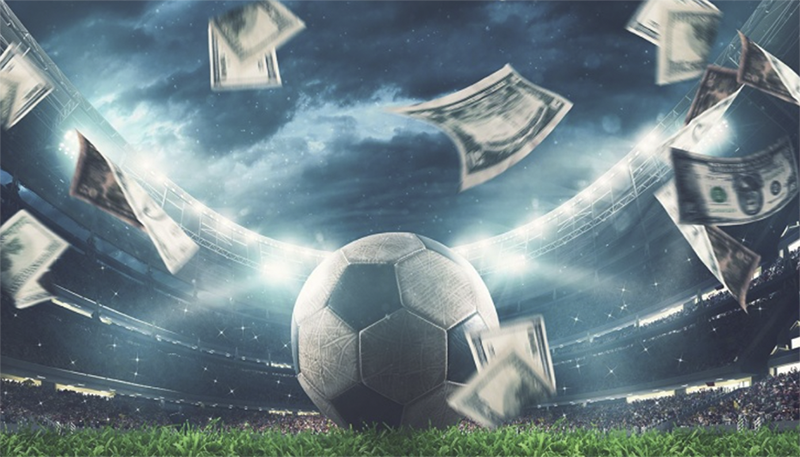Sports betting has long since evolved from a casual pastime into a well-structured economic system with a huge turnover. The essence of sports betting is analysis, probability assessment and risk management, not blindly picking the favourite. A bookmaker does not sell the chance of winning – he trades an assessment of possible scenarios, putting a margin in every figure. The right choice is not a lottery, but a decision backed by statistics, logic and strategy.
What’s behind the excitement: the mechanics of the gambling industry
Each bet is a contract between a punter and a bookmaker based on the odds offered. Bookmakers form lines using algorithms, databases and predictive models. The average margin on prematch bets is 5-7%, while in live betting it is up to 10%. This difference turns the player’s winnings into the bookmaker’s income over a long distance.
The essence of sports betting is revealed in the mechanics of odds: the higher the probability of an event, the lower the potential winnings. They reflect the predicted outcome, taking into account the operator’s embedded profit. At a quote of 1.50 the chance is estimated as 66.7% (1/1.5), but the real one is less due to the inbuilt margin.
Variety of approaches: types of sports betting
The market offers dozens of options – from ordinals to exotic expresses and systems. A single bet is a bet on a single event, with a fixed payout. Express combines several outcomes, multiplying the risk and potential income. The systems allow combining several expresses with varying degrees of loss insurance.

The use of a particular type depends on the objective – minimising risk or aggressively building up capital. That’s where the point lies: not just guessing, but intelligently weighing the risk and benefit.
Not just a click: how to bet wisely on sports
An effective process starts with analysis. Ignoring statistics and intuitive choices are the main causes of losses.
What to pay attention to before the game:
- study the team’s form and squad;
- take into account motivation (tournament position, derbies, rematches);
- compare the lines of different bookmakers;
- to evaluate the odds in dynamics.
The essence of sports betting is overestimation – finding odds that exceed the real probability of the event. This approach creates a “valuus” – a situation where the player gets a mathematical advantage.
When strategy is more important than faith: approaches and essence of sports betting
 Sports prediction systems are based on patterns. Among the effective ones are Flat, value betting, catch-up. Flat is a bet of the same amount on each event. Value betting focuses on overvalued odds. Dogon is applied in a controlled manner, using an increase after a loss.
Sports prediction systems are based on patterns. Among the effective ones are Flat, value betting, catch-up. Flat is a bet of the same amount on each event. Value betting focuses on overvalued odds. Dogon is applied in a controlled manner, using an increase after a loss.
Without a strategy, any bet is just a risk. The choice of approach must take into account bankroll, statistics and discipline.
What the number grows out of
Odds determine the profitability. They are made up of the mathematical probability and the bookmaker’s mark-up. For example, if for the match “Barcelona – Athletic” the quote for the victory of the home team is 1.80. This means that the company estimated their chance of winning at ~55%, adding 4-6% margin.
The difference between the lines of bookmaker offices signals an incorrect assessment of the event. Such moments open up opportunities for arbitrage. Without in-depth analytics, the use of this information does not provide an advantage. The essence of betting on sports is a proper understanding of pricing and evaluating bias.
Practice under the microscope
Each discipline requires a specific approach. In football, it is the form of the teams, the realisation of chances and motivation that is important. In hockey – majority and minority statistics, strength of the front line. Basketball – number of rebounds, performance of stars. In cyber sports – the map, the current patch update and the level of communication of the team.
The essence of sports betting depends on the discipline. For example, in cyber sports unexpected outcomes happen more often – due to the inexperience of bookmakers’ lines and high dynamics of changes.
Precise formulations: risk management tools
Total allows you to bet on the number of goals, points, sets. Example: TB 2.5 in the match “Real – Valencia” means that you need at least three goals. A handicap – shifts the outcome, creating a virtual advantage or disadvantage. For example, F(+1.5) on Anji means a win with a draw or a minimal defeat.
Using these tools allows you not to depend on the final outcome. They reveal the essence of sports betting – the search for advantages even in matches with a clear favourite.
When guessing does not mean winning
The risks are obvious: overestimation of your own knowledge, emotional decisions, catch-up without limits, addiction. On average, 85% of players lose the bank on the distance. The reasons are lack of discipline, impulsive decisions, following the crowd.

The essence of sports betting requires equanimity and understanding of probabilities. Only a systematic approach will minimise losses. Example: with a flat ROI of 5% and 100 bets of 1000 roubles, the net income will be 5000 roubles. This is a stable result without jumps.
Why analysis is more important than feelings
Predictions rely on calculation. Using xG (expected goals), kicking averages, possession, injury and form data is the standard for an analytical approach. Without taking these factors into account, the probability of an outcome becomes guesswork.
Forecasters use databases, mathematical models, current news. A choice made on the basis of a preliminary forecast without understanding the context is a mistake. Example: even at high odds, the analyst takes into account motivation, style of play and refereeing characteristics. This is the essence of sports betting as a complex analytical work.
How to avoid typical mistakes:
- Ignore analytics – leads to betting “by ear”, without assessing probability.
- Avoid emotional decisions – choosing your favourite team often goes against logic.
- Doubling down after a loss – increases the risk of bankruptcy.
- Betting on unfamiliar disciplines – does not allow you to assess the form of the teams and the current metagame.
- Neglect bankroll management – leads to loss of funds even with a good ROI.
Each of the points contradicts what sports betting represents – calculation, strategy and equanimity.
Conclusion
 The point is not the excitement. It’s not about guesswork. And certainly not in randomness. The essence of sports betting is in analytics, calculations and strategy. This is a market where cold-blooded calculation, clear strategy and the ability to analyse rule. In a world where billions revolve, the winner is not the one who hopes, but the one who calculates every move.
The point is not the excitement. It’s not about guesswork. And certainly not in randomness. The essence of sports betting is in analytics, calculations and strategy. This is a market where cold-blooded calculation, clear strategy and the ability to analyse rule. In a world where billions revolve, the winner is not the one who hopes, but the one who calculates every move.
 en
en  de
de  ar
ar  es
es  nl
nl  hi
hi  fr
fr  it
it  pt
pt  el
el 









